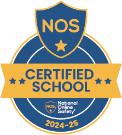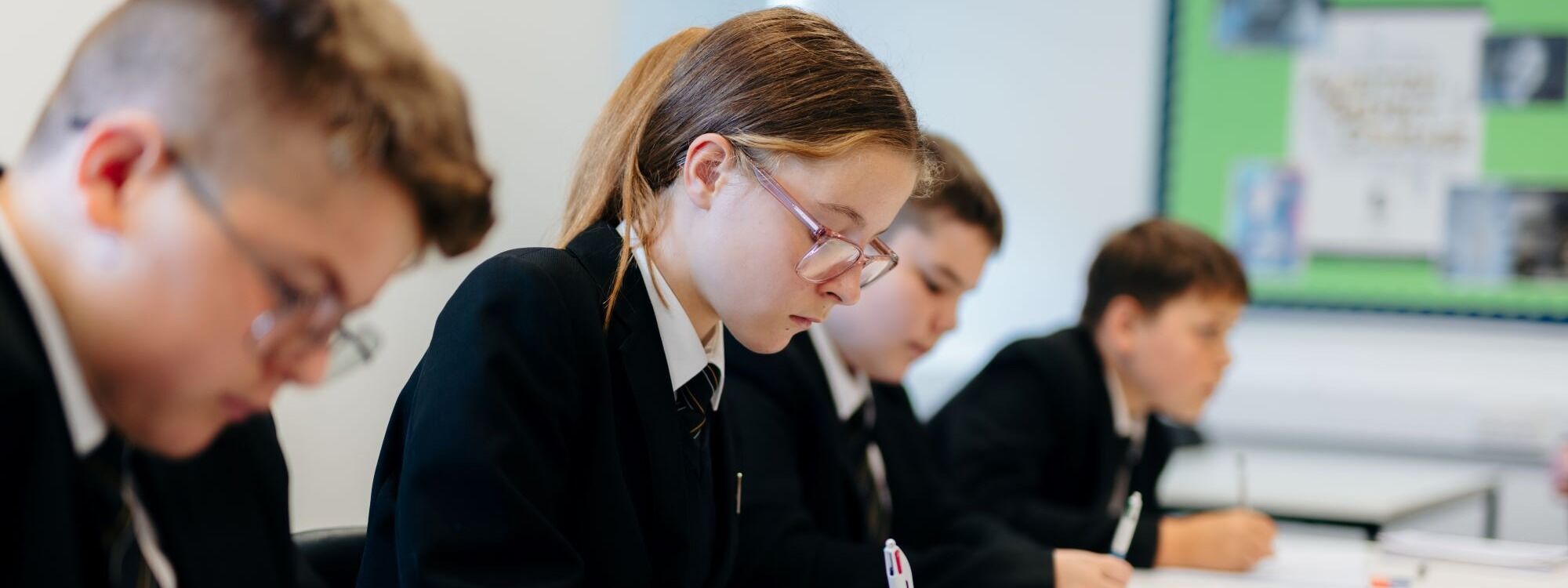
Safeguarding
The health, safety and well-being of all our pupils and staff at The Marvell College is paramount.
Our priority is to provide a safe and welcoming environment where children are respected and valued. We know that children thrive better and are able to reach their full potential when we all work closely together. Child Protection is a crucial part of school life. All staff receive regular training on how to keep children safe. Every member of the school community has a responsibility to keep all children safe.
Staff at The Marvell College have a statutory responsibility to share any concerns they may have about a child in need of protection with other agencies and in particular Children’s Social Care, Police or Health. Our priority is to work with parents/carers, there may be times however, when we have to involve other people. Schools are not able to investigate concerns but have a legal duty to refer them. In most instances, the school will be able to inform the parents/carer of its need to make a referral. There are occasions when the school is advised by children’s social care or Police that the parents/carers cannot be informed whilst they investigate the matter. We understand the anxiety parents/carers understandably feel when they are not told about any concerns from the outset. The school follows legislation that aims to act in the interests of the child.
Parents are the most important people at keeping their children safe. You should always:
- Feel confident to raise concerns about your child.
- Talk to us if you need help or support.
- Read our policies about safety issues.
- Let the school know if your child has a medical condition.
- Let the school know if there is a change in your circumstances such as a house move, a new contact number, a change of name, a change of parental responsibility, emergency contacts.
- Let the school know if you have any court orders relating to the safety of your child.
The Designated Safeguarding Lead at The Marvell College is:
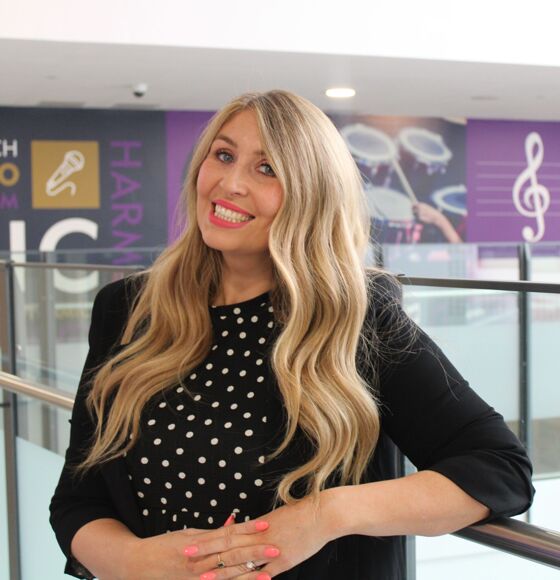
Miss Sarah Willson, Assistant Headteacher
What to do if you have a concern about a child attending The Marvell College
During school hours:
- Y7PastoralTeam@themarvellcollege.com
- Y8PastoralTeam@themarvellcollege.com
- Y9PastoralTeam@themarvellcollege.com
- Y10PastoralTeam@themarvellcollege.com
- Y11PastoralTeam@themarvellcollege.com
Contact the school and speak to the Designated Safeguarding Leads. Please contact Julie Trotter on 01482 799132 or Contact EHASH Worried about a child | Hull.
Out of school hours and during school holidays:
- If your concern is urgent and there is an immediate risk of harm, then contact the Police on 999.
- If your concern is less urgent but you are worried about the welfare of the child, then contact EHASH Worried about a child | Hull.
- Hull Children’s Social Care (CSC) has a ‘front door’ service, which is the first point of contact for any individual or agency that requires information, advice and safeguarding services for children and/or who may be worried about the welfare of a child 01482 300304.
- If you have concerns about a child at The Marvell College, which you believe the school needs to be aware of, then email
- Suzanne Wilson (Strategic Safeguarding Lead for HCAT): swilson@hcat.org.uk, Mrs Wilson will make contact with a key member of staff from the school on your behalf.
For further guidance please refer to:
The Hull Safeguarding board: Procedures online.
NSPCC.org.uk NSPCC
Talk to FRANK: Talk to frank
Childline: Childline
Educate against hate crime: Educate against hate
Keeping Children Safe in Education: Keeping children safe in education
Working together to Safeguarding Children: Working together to safeguard children
Duty number of the school Nurses:
Tel: 01482 344301 / 336634
Text messaging number: 61825
email address: hull.cypcommunityservices@nhs.net
Safeguarding Team at The Marvell College
 | Miss S Willson Assistant Headteacher Designated Safeguarding Lead |
|
| Mrs J Trotter Deputy Designated Safeguarding Lead |
 | Mrs R Collins Safeguarding Assistant |
 | Mr T Wray Head of Year 7 |
 | Mr S Towner Head of Year 8 |
 | Miss L Rawson Head of Year 9 |
 | Mr L Mitchell Head of Year 10 |
 | Mrs H Lyne (previously Miss H Smith) Head of Year 11 |
Alcohol and Drugs
ALCOHOL AND DRUGS
Most teenagers have begun experimenting with alcohol by their mid-teens but this doesn’t make it any less worrying for parents. Relate family counsellor, Denise Knowles said:
“Underage drinking can have a huge impact on teenager’s lives. Not only are young people who drink regularly at risk of liver damage but alcohol can also affect their mental health, sexual behaviour and achievement in the classroom. Lots of parents have concerns about their teenagers and alcohol but find it difficult to communicate effectively, which can put the relationship under strain. The truth is it’s never too early or too late to have an open conversation about drinking and to lay down some ground rules.”
- Talking to your teenager about alcohol: Relate’s tips for parents
- Talk to your teen openly and honestly about the risks associated with alcohol. The Drinkaware (drinkaware.org.uk) website is a good source of information.
- Put rules in place - research shows that teens that have rules around alcohol are less likely to get drunk. Sit down with your teen and agree some boundaries together.
- If your teen does come home drunk, don’t talk to them about it until they’ve sobered up. Your son or daughter is unlikely to be able to think clearly while under the influence and the conversation is more likely to end in an argument.
- If they’ve been drinking, explain why you’re upset or concerned - tell them that you really love and care about them and that you’re scared for their safety when they drink.
- Avoid adopting a blaming position. It may help to reflect on your own experiences of alcohol as a teenager.
- Bear in mind your responsibility as a role model when it comes to your own drinking. This may affect their response to the way you communicate with them.
Useful websites:
familylives.org.uk

relate.org.uk

talktofrank.com

nspcc.org.uk
Bullying
BULLYING
We take all cases of bullying very seriously and will work with children and families to try and resolve any problems. We ask that if you suspect your child or any other child at The Marvell College is being bullied, you report it as soon as possible to the relevant Year Team. We have an anti-bullying policy, which can be accessed on request via our school office.
YOU KNOW YOUR CHILD BEST SO WILL BE AWARE IF SOMETHING SEEMS WRONG. SPOTTING THE SIGNS THAT A CHILD IS BEING BULLIED;
The type of behaviour that might be an indication of bullying includes
- a reluctance to go to school;
- unexplained tummy upsets or headaches;
- showing signs of distress on a Sunday night or at the end of school holidays;
- becoming either quiet or withdrawn, or playing up;
- torn clothes and missing belongings;
- seeming upset after using their phone, tablets, computers etc; and
- wanting to leave for school much earlier than necessary or returning home late
Please see below some useful links for further information.
anti-bullying alliance
kids health
Bullying
Child Exploitation
CHILD SEXUAL EXPLOITATION
Child Sexual Exploitation can be hard to detect and abusers are very clever in their manipulation. Some young people won’t even be aware that it is happening to them.
It’s not always easy to know what our children are up to or if anything is bothering them, but any combination of these tell-tale signs is a strong indicator that something is wrong and you should get help.
Some signs may be:
- Regularly using drugs or drinking alcohol
- Mood swings, aggression towards others
- Truancy or a drop in performance at school
- Self-harm – e.g. cutting or eating disorders
- Change in appearance, or borrowing clothes from others
- Unexplained relationships with older people
- Staying out late, not returning home
- Unexplained gifts, expensive clothes, mobile phones
- Unexplained money, frequently taking part in activities requiring money
Tik Tok is a media app that allows pupils to create and share short videos. Below is a link with some tips on how to ensure your child can stay safe if using Tik Tok and is relevant to other social media sites.
LGBTQ+
The Marvell College is an inclusive school for all children. We are currently working towards The Rainbow Flag Award which focuses on positive LGBTQ+ inclusion and a commitment to improving the lives of all young people we work with.
We have currently obtained the skilled teacher award which identifies that all staff recognise and consistently challenge and report LGBTQ+phobia. In addition, staff confidentiality use positive and appropriate language around LGBTQ+ identities. Examples of this terminology can be found here: List of LGBTQ+ terms (stonewall.org.uk)
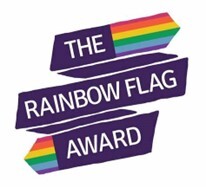
Support available for pupils:
LGBT FOUNDATION Advice Support & Information 0345 3 30 30 30
 The Warren- Step out- emma@thewarren.org website;https://www.thewarren.org/lgbtq
The Warren- Step out- emma@thewarren.org website;https://www.thewarren.org/lgbtq
We offer two separate confidential Youth Groups for young people identifying as Lesbian, Gay, Bisexual, Transgender and Queer or Questioning. We keep our membership confidential to protect your privacy, as not all of our group members are "out" to their families and peers.
You don't have to be sure which labels fit just yet; you still have a place with us. People come to the groups for all sorts of reasons, but one of the most popular is to make friends and meet other like-minded people.

Yorkshire Mesmac
Yorkshire Mesmac Hull deliver focused work with various communities including Gay, Bisexual and other Men who have Sex with Men (MSM).
TEL: 01482 291190 Email:hull@mesmac.co.uk
Webiste- Home - Yorkshire MESMAC
Cornerhouse
Cornerhouse (Yorkshire) is a Young People's service offering support in Hull and East Yorkshire. They offer a range of services for the LGBT community including access to condoms and lubricant, information, one to one offering support on coming out, sexuality, HIV and gender issues and support in reporting hate crimes.
Website- Welcome | Young People's Sexual Health in Hull and East Yorkshire (wearecornerhouse.org)
Shout Group
A safe and confidential space for LGBT+ young people between the ages of 14 and 25. They offer a space to have a laugh, get support and meet new friends.
TEL: 01482 218115 EMAIL: FAYMARSDEN@THEWARREN.ORG
Support available for Parents/Carers:
FFLAG
Dedicated to supporting parents and their lesbian, gay and bisexual daughters and sons. They offer support to local parents groups and contacts, in their efforts to help parents and families understand, accept and support their lesbian, gay and bisexual members with love and pride.
PFLAG
PFLAG provides free support for parents, friends and family of LGBT+ people in the UK. They offer free resources for parents of LGBT+ children, information for friends and family of LGBT+ people, as well as useful and general support.

Mental Health & Wellbeing - Parents & Carers
Children’s social, emotional mental health (SEMH) is paramount to their overall development. We are aware that a lot of children’s experiences’ can affect their SEMH including the impacts of Covid, and school closures.
The Marvell College educates young people about positive mental health through our pastoral and PSHE curriculum, but are aware that some children may require additional support. There is a wide variety of support available in school through specialised staff, as well as utilising outside agencies for more specialist support such as Camhs and Mind.
Please find below support available for both parents/guardians and students.
Parent/Guardian:
Internal support
Please speak to your child’s year team or the safeguarding team regarding the support available in school.
External support:
CAMHS
Child and Adolescent Mental Health Services (CAMHS) are services that support young people experiencing poor mental health, or difficult feelings or experiences. CAMHS can work with schools, charities and local authorities.
Normally you need a referral from your doctor, but some services also accept referrals from:
- Schools and school counsellors
- Social workers
- Youth offending teams
- Yourself, depending on your age and what your local service allows
If your child is in crisis please call this number- 0800 0516 171
Hull and East Yorkshire Mind helpline:
24/7 information and advice or support to children, young people or their parents/carers. If you or someone you know is feeling down, please remember that you are not alone and we are here for you 24 hours a day. We are here to provide information, advice or support to children, young people or their parent carers.
Contact Details: 01482 240133 Freephone 0800 1380990 Text: 07520 633 477
Email: info@heymind.org.uk Twitter @MindHEY
HOW ARE YOU FEELING?
Getting Help — How Are You Feeling?
Early Help
There will be times when families need support. There are a group of services in Hull collectively known as Early Help who can support families at these times and make problems easier to understand and quicker to solve.
Families can seek support from a professional who is currently known to the family, for example a Health Professional or a member of staff at your child’s school or can make a self-referral.
Contact Details:
North Locality Hub Tel: 01482 828 901
East Locality Hub Tel: 01482 708 953
West Locality Hub Tel: 01482 305 770
Mental Health & Wellbeing - Students
Internal Support
Please speak to your tutor, trusted adult, year team or the safeguarding team regarding the support available in school.
If you are concerned about a friend or another young person in school, also speak to your tutor, trusted adult, year team or the safeguarding team regarding the support available in school.
External Support
Young Minds Website
Young Minds provide young people with tools to look after their mental health. The website is full of advice and information on what to do if you’re struggling with how you feel. Support is also available for parents and adults who work with young people, to be the best support they can be to the young people in their lives.
Website: YoungMinds | Mental Health Charity For Children And Young People | YoungMinds
Young Minds Textline: Provides free, 24/7 text support for young people across the UK experiencing a mental health crisis. All texts are answered by trained volunteers, with support from experienced clinical supervisors.rs.
Young Minds Textline: Text YM to 85258.
Childline
If you’re under 19 you can confidentially call, chat online or email about any problem big or small. You can sign up for a free Childline locker (real name or email address not needed) to use the free 1-2-1 counsellor chat and email support service. Hosts online message boards where you can share your experiences, have fun and get support from other young people in similar situations.
Contact number: 0800 11 11
Website: Childline | Childline
The Samaritans
WEBSITE: www.samaritans.org
Email: jo@samaritans.org
Contact number: 116 123
THE MIX
The Mix is the UK’s leading support service for young people. We are here to help you take on any challenge you are facing – from mental health to money, from homelessness to finding a job, from break-ups to drugs. Talk to us via our online community, on social, through our free, confidential helpline or our counselling service.
The Mix - Essential support for under 25s
HOW ARE YOU FEELING?
Website- About THRIVE Hull — How Are You Feeling?
KOOTTH
Kootth is an online service offering free, safe and anonymous support.
WEBSITE- Home - Kooth
Turn 2 Us Youth Workers / Youth Development Service
Turn 2 Us for young people aged 11-16yrs (secondary school age) offering young people the opportunity to have a chat with a youth worker who can provide information advice and guidance (IAG) and support with low level emotional well-being issues.
Turn 2 Us is 1x weekly lunch time drop in available in every Secondary school in Hull during term time and during the holiday periods as Turn 2 Us outreach in open spaces within local communities.
Turn 2 Us is also available as 121 bookable chats (up to 5 sessions) with a youth worker in local HCC youth centres and in some secondary schools. Young people can contact their local youth centre to book a Turn 2 Us appointment without referral.
Setting: East Hull - Andrew Marvell Youth Centre
Contact number: 791226
Online and Internet Safety
ONLINE SAFETY
As a parent/carer, the world of online safety can be confusing and overwhelming. There is so much information out there and often the children are so much further ahead in their understanding.
E-Safety is just as important as teaching your child about stranger danger or what to do in a fire. As a school we promote E-Safety in all aspects of ICT usage. Below are some useful links for national organisations that offer practical advice and guidance on how to keep your child safe on-line.
Channels – National Online Safety | The National College
ONLINE GAMING
Childnet International is an organisation who works with others to help make the internet a safe place and offer the latest advice.
Childnet have updated their guide to help parents and carers get to grips with their children’s online gaming.
The guide offers basic, but extremely useful hints and tips on how they can keep their children safe online.
Information, Advice and Support to Keep Children Safe Online (internetmatters.org)
What is Roblox? A guide for parents to keep kids safe | Internet Matters
Parent Zone | At the heart of digital family life
Keeping children safe online | NSPCC
How to Keep Kids Safe on YouTube in 2023 — Works 100% (safetydetectives.com)
Channels – National Online Safety | The National College
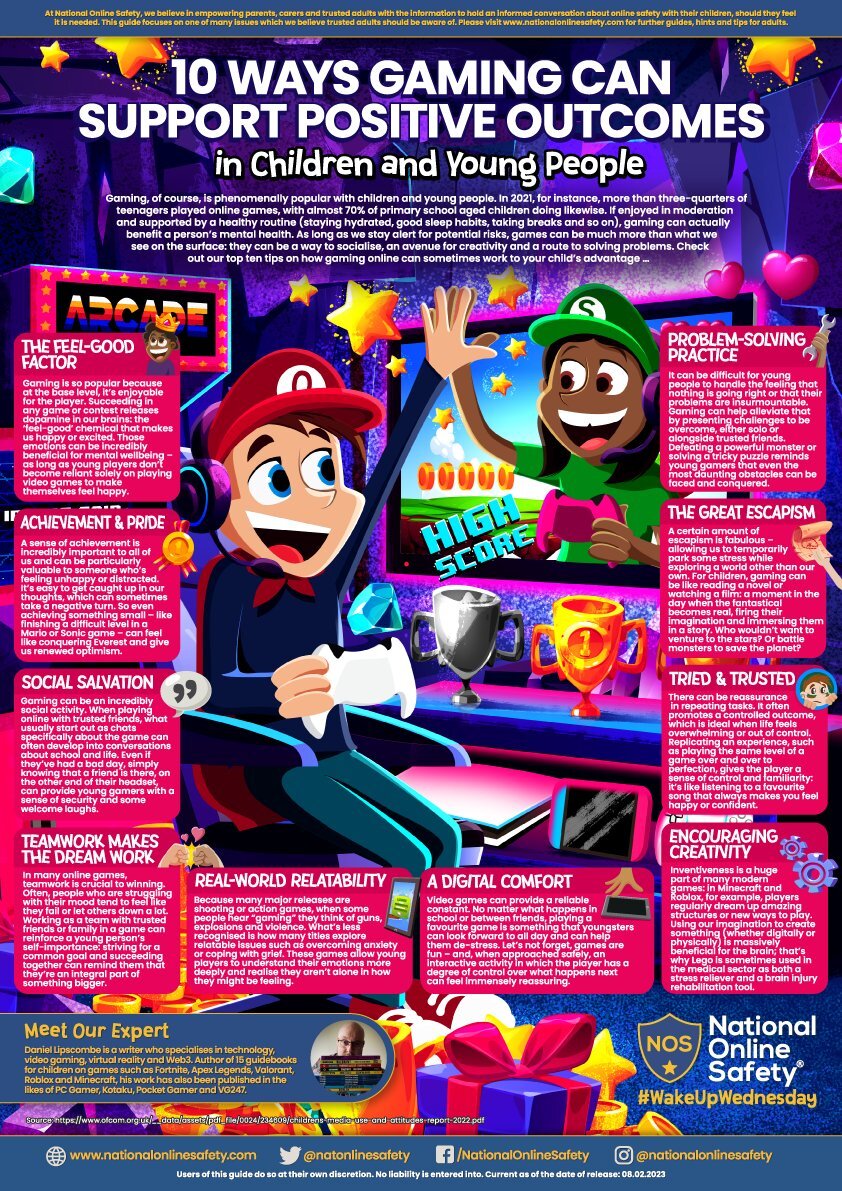
Radicalistion and Extremism
RADICALISATION AND EXTREMISM
There have been many reports in the media recently of young people being targeted by adults and peers who hold extreme views that advocate violence. Some young people have been persuaded to leave the country in secret and against the wishes of their family, putting themselves in extreme danger as a result. ‘Extremism’ is where someone holds views that are intolerant of people who are of a different belief, ethnicity, culture, religion, gender or sexual identity. For young people, a key part of growing up is exploring new ideas and critically questioning the world around them, and this should be encouraged in order to help them develop their understanding of the world and learn the values of tolerance and acceptance. However, this needs to be balanced against the need to protect young people from radicalisation and extremism.
What to look out for:
- Out of character changes in dress, behaviour and beliefs.
- Changes in their friendship group or associating with people who hold extremist beliefs.
- Losing interest in previous activities.
- Changes in use of social media with increased secrecy.
- Showing sympathy for extremist causes.
- Advocating extremist messages.
- Glorifying violence.
How to help keep them safe:
- Make sure you know where your child is and who they are with; find out about your child’s friends and their families.
- Be aware of your child’s online activity and check which social media sites they are visiting; report any sites that you have concerns about.
- Talk to your child about their lives and their interests; encourage them to take up positive activities with local groups that you trust.
- Help your child to be critically aware of what they see on the TV or the internet; encourage them to see different points of view and help them to develop tolerance for others.
Useful websites:
educateagainsthate
nspcc.org.uk
Self Harm
Understanding self-harm
Self-harm can cover a range of things that people do to themselves in a deliberate and harmful way. Although cutting is the most common form of self-harm, other methods include head banging, hair pulling, burning and scalding, biting, scratching, stabbing, breaking bones, swallowing objects, self-poisoning and overdosing.
By injuring themselves, children and young people are asserting a form of self- control on their life which they feel is otherwise chaotic and meaningless. Self-harm is a way of coping and of channelling frustration and other strong emotions. In the vast majority of cases, it is not a suicide attempt.
Apart from the physical symptoms of self-harm, there are other clues to watch out for if you are concerned about your child. Your child may seem very down and talk about being a failure or feeling unhappy. They may take to wearing many layers of clothes, or trying to hide or downplay injuries.
What you can do about self-harm.
-
Show you understand. Whatever your relationship to a child, discovering they're self-harming will inevitably have a big emotional effect on you.
- Talk it over
- Discover the triggers.
- Build their confidence.
- Show you trust them and they can trust you.
- Help them find new ways to cope.
Useful websites:
nspcc.org.
youngminds.org
childline.org
mind.org
School Specific Information
SCHOOL SPECIFIC INFORMATION
1. Designated Teacher for Safeguarding - Miss Sarah Willson
2. Designated E Safety Lead - Miss Sarah Willson
3. Trust Safeguarding Lead - Suzanne Wilson contact Swilson@hcat.org.uk
Safeguarding Newsletters 2024 - 2025
Safeguarding Newsletters 2023 - 2024
1. Safeguarding Newsletter September 2023
2. Safeguarding Newsletter October 20233. Safeguarding Newsletter November 2023
4. Safeguarding Newsletter December 2023
5. Safeguarding Newsletter January 2024
6. Safeguarding Newsletter February 2024
7. Safeguarding Newsletter April 2024
8. Safeguarding Newsletter May 2024
9. Safeguarding Newsletter June 2024










